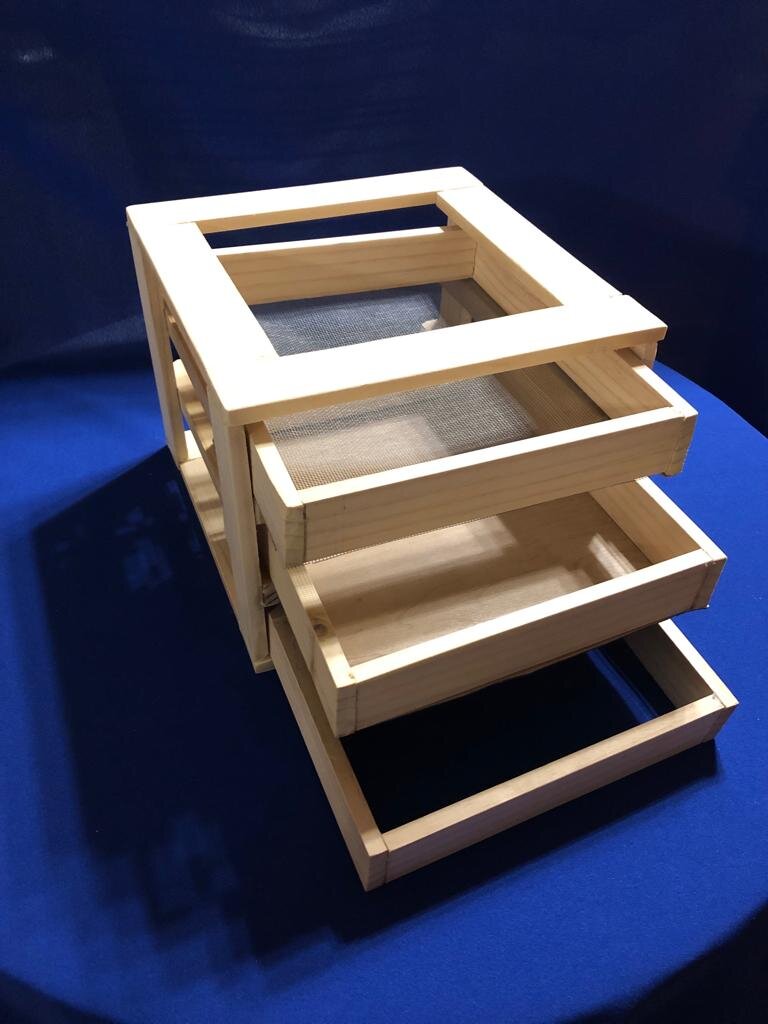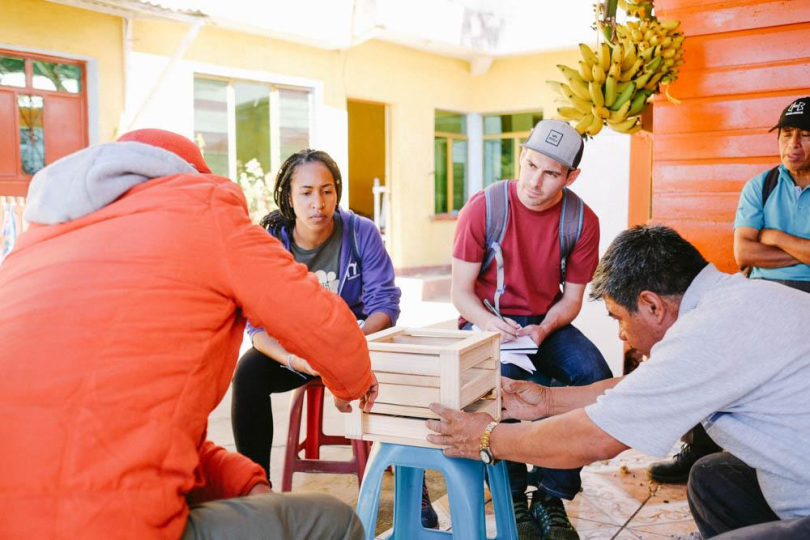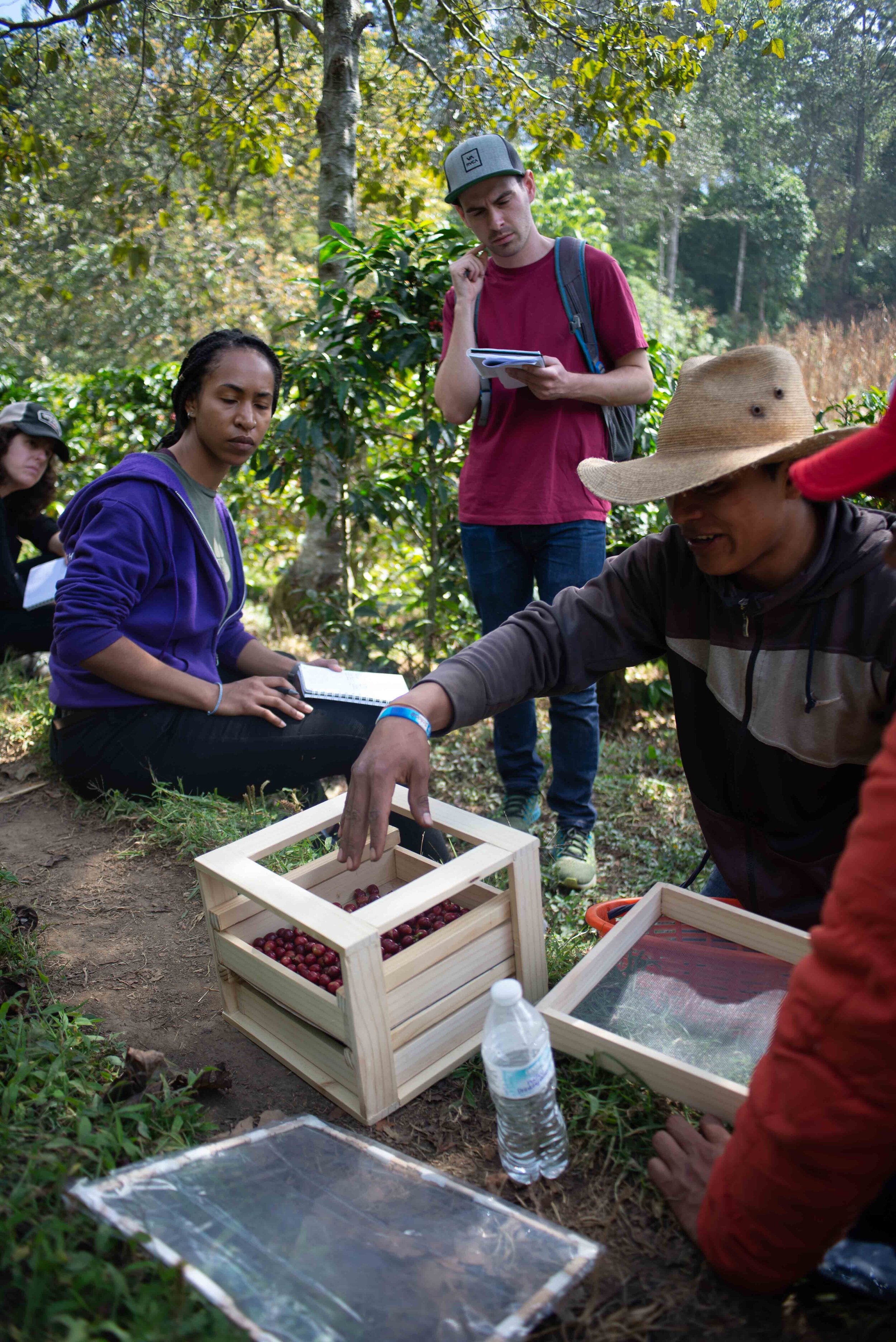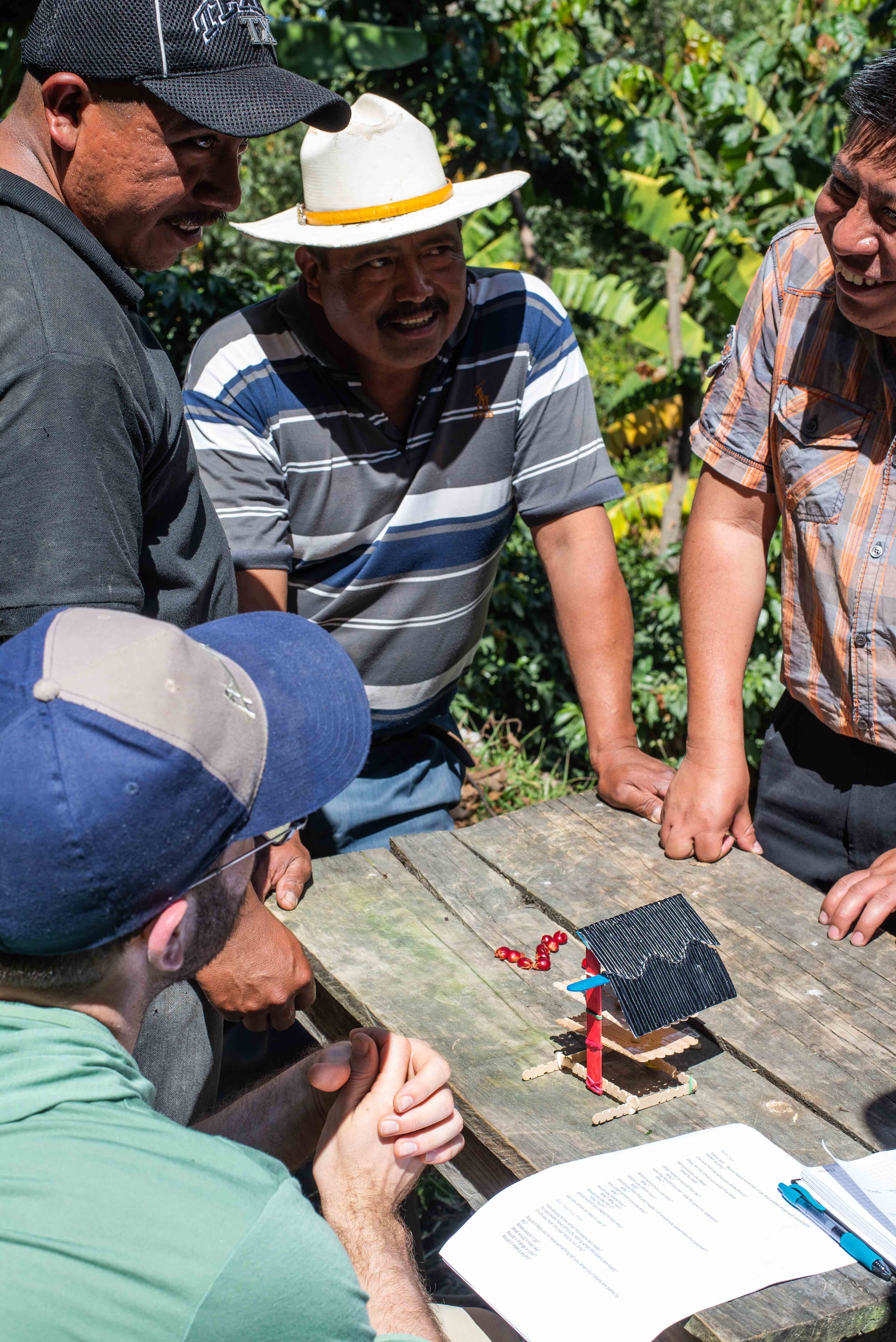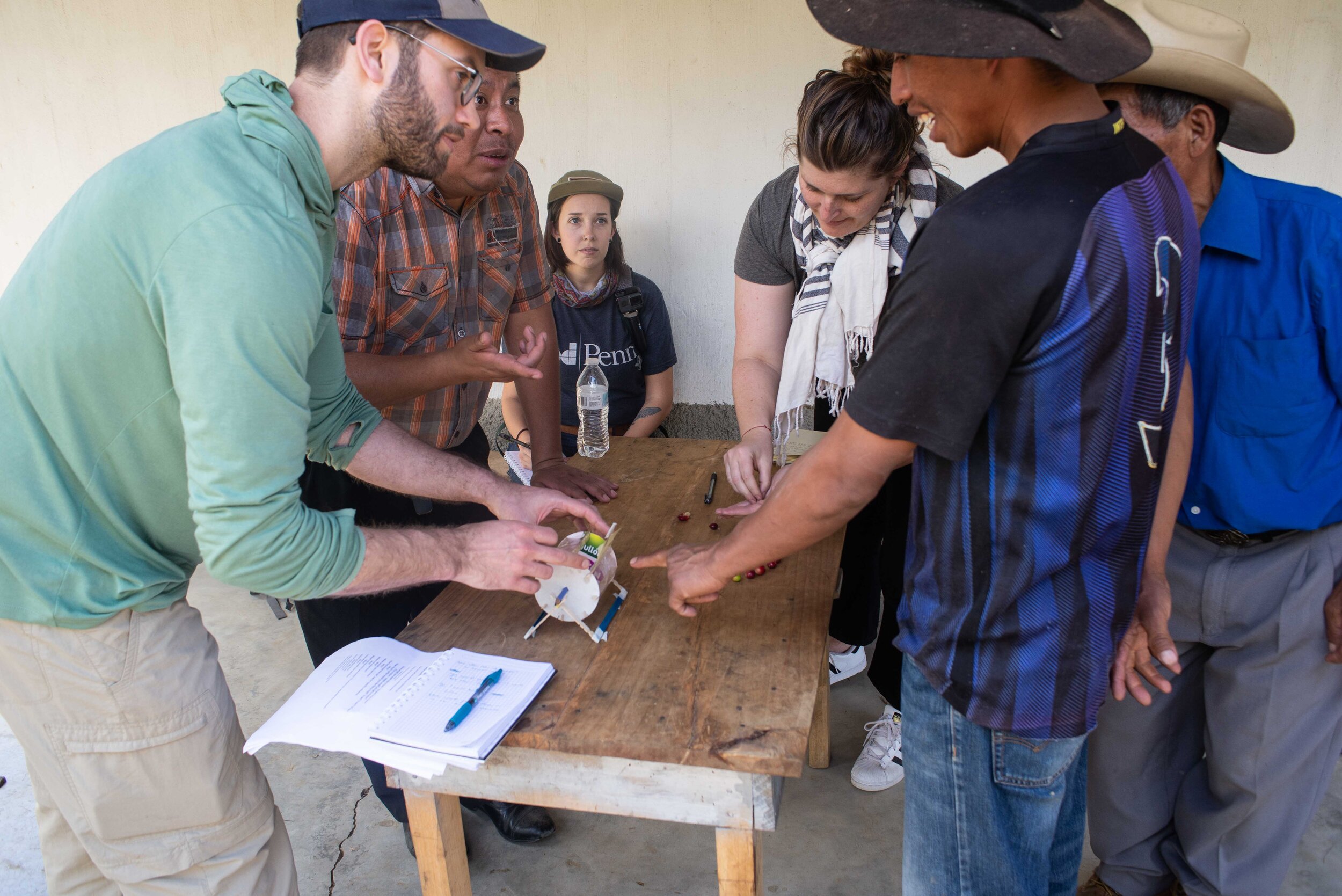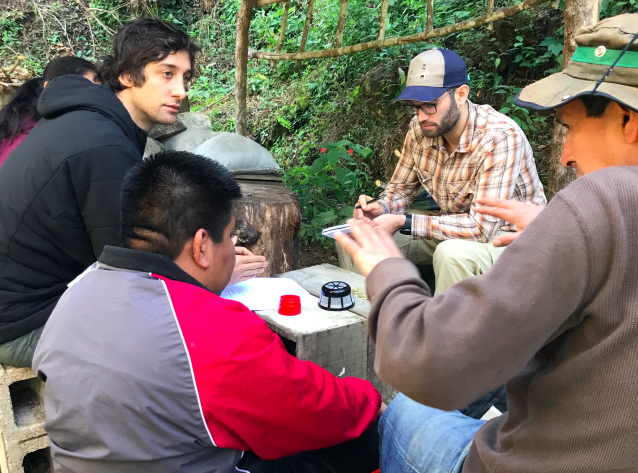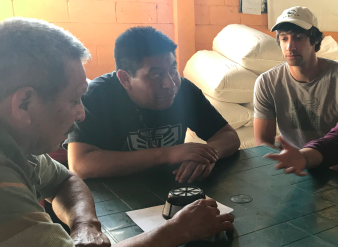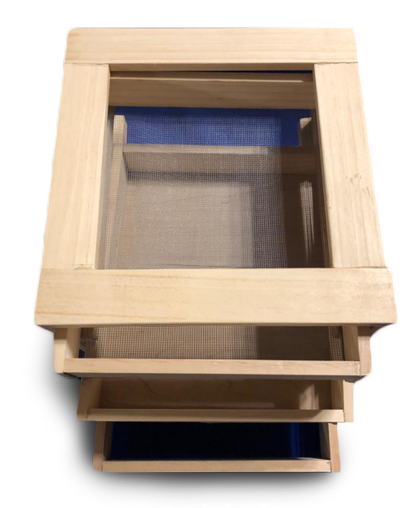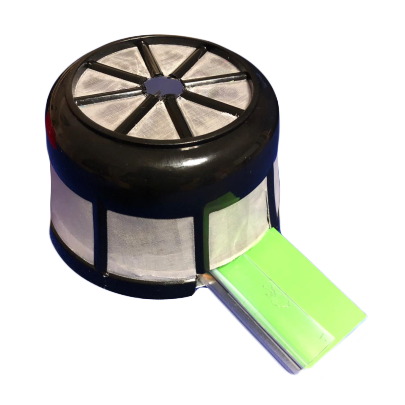Role: Project coordination, user research, prototyping | Team of 6 | Timeline: January 2018
This project was a collaboration between the Integrated Product Design Program at the University of Pennsylvania and International Development Enterprises (iDE)
Grano Guardiàn is a low-cost solution for measuring the moisture levels in coffee beans throughout the drying process, allowing farmers to monitor when the beans have reached the ideal quality for sale.
Elevar Alto is an ergonomic solution that can be used to protect coffee from rain, dry in the sun/shade, and reduce the physical labor inherent to the drying process.
Both solutions were designed to help small holder Guatemalan coffee farmers gain more control over the quality of their beans during processing.
Curiosity
The Problem:
Global climate change and shifts in the global coffee market have put increasing economic pressures on smallholder coffee farmers in rural Guatemala.
A quick lesson in coffee production for smallholder farmers:
Growing: The coffee is grown on short, fickle trees that produce coffee ‘cherries.’ These are small, sweet red fruits
Harvesting: The cherries are picked off the trees by hand and collected in large baskets
Drying: The cherries are laid out on a tarp to dry in their skins (dry or honey method) or separated from the skin and fruit and fermented in water for up to two days before drying (wet method)
Hulling: Dry coffee beans are passed through a hulling machine to remove the parchment layer left after the drying process. Most farmers bring their beans to a common processing station, such as a coop, to have them hulled
Packaging: Processed beans, called ‘green coffee’ at this stage, is sold to a buyer (either a roasting company or a middle party) by the kilo
Insights:
Farmers rely heavily on local coops to educate, train and assist them in their coffee production, as well as get the crop to market. When co-ops don’t offer the best prices, farmers turn to ‘coyotes’ who will barter for a better price
While the quality of the coffee is what ultimately decides the price the coop will pay for the crop, most farmers have no way to determine whether or not they are meeting the coop’s standards
Unpredictable weather conditions have forced farmers to rethink growing methods that have worked for generations
Developing Solutions: By helping farmers add value to their crops before they send them for sale, they can hope for higher prices on their coffee and better confront the challenges that the new climate is creating. How might we design a product/service solution for smallholder coffee farmers at a specific stage of production (growing, harvesting, drying, hulling, packaging) that will increase the perceived quality of the beans when they reach the market?
Creativity
Low-Res Prototypes: (Click the image to learn more)
Medium Resolution Prototypes: (Click the image to learn more)
After talking to users, we found that the biggest opportunity was to help farmers dry their beans to the desired 11% moisture level that was required for the coop and other buyers to pay farmers the highest price by the kilo. We moved forward with three prototypes designed to improve the drying process for farmers, all built with materials found in local markets.
User Testing:
After our initial round of user testing with farmers, we went back into the field with higher resolution prototypes to do a new round of tests. Farmers found the solutions intuitive, and weren’t afraid to give us ample feedback on how they could be improved.
Impact
Business Case:
As part of our proposal, we created high level business plans with the local coop for both Elevar Alto and Grano Guardiàn
Next Steps:
We presented our project at a local incubator in Antigua, Guatemala, and talked through the project with other Guatemalan NGOs. As of 2020, the program at UPenn is exploring options to take another group of students to Guatemala to continue the work and make higher resolution prototypes in partnership with the coop that worked with the original group.







